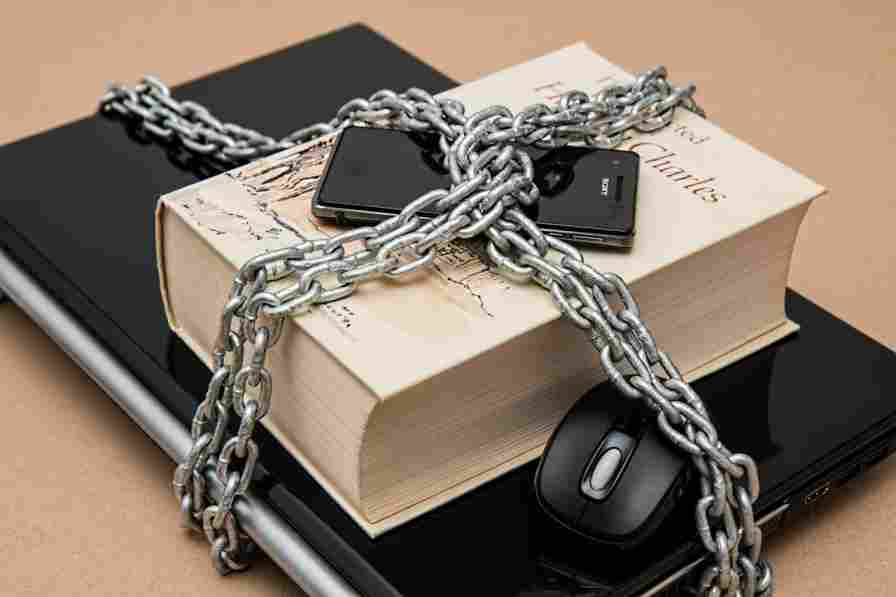
Table of Contents
Introduction – thejavasea.me leaks aio-tlp
Data breaches and leaks are common in today’s fast-changing digital world. Websites like TheJavaSea.me are known for exposing sensitive information. Recently, there was a significant leak involving something called AIO-TLP. In this article, we will explain what TheJavaSea.me is, what AIO-TLP means, the impact of these leaks, and how to protect yourself.
What is TheJavaSea.me?
TheJavaSea.me is a website that shares leaked information from different sources. This information can include personal details or sensitive company data. These sites often get attention because of the controversial nature of their content. They might reveal personal ID numbers, passwords, and financial information.
Some people visit these sites out of curiosity, but others might use the leaked information for harmful reasons. It’s important to know that interacting with or sharing information from such sites can lead to severe legal and ethical problems.
What is AIO-TLP?
AIO-TLP stands for “All-In-One Threat and Leak Protection.” It helps protect against online dangers like viruses, scams, and data leaks. People and businesses use it to keep their information safe.
If AIO-TLP information is leaked, details about how the system works or protected information might be exposed to others.
You can also read about – TheGameArchives Updates: Latest Retro Gaming News, Features, and Tips
You can also read our latest post
The Impact of Data Leaks from TheJavaSea.me
When sites like TheJavaSea.me Leaks AIO-TLP leak data, it can lead to:
Personal Information Issues
- Names: Someone might use your name to pretend to be you.
- Addresses: Your address could be used to threaten or rob you.
- Phone Numbers: Scammers might call you to trick you.
- Emails: Your email might get spammed or used in scams.
- Social Security Numbers: Thieves might steal your identity.
- Medical Info: Your health details might need to be used more.
Financial Problems
- Unauthorized Purchases: Stolen credit card info can be used to buy things without your permission.
- Bank Theft: Leaked bank details can lead to stolen money.
- Investment Scams: Your financial info might be used to trick you into fake investments.
- Fake Tax Returns: Thieves might file fake taxes using your info.
- Credit Score Issues: Misusing your financial info can hurt your credit score.
Privacy Concerns
- Relationship Damage: Leaked messages could harm your relationships or be used to blackmail you.
- Job Risks: Leaked work info might hurt your job.
- Business Damage: Leaked business info can harm your company’s reputation.
- Reputation Loss: Exposed personal info can damage your reputation.
Security Risks
- Hacker Exploits: Hackers might use leaked security info to break into systems.
- More Attacks: Users might face more attacks if their system is affected.
- Trust Issues: People may need more trust in the company or service.
- Fines: The company might get fined for not protecting data.
- Repairs Needed: The system might need fixing after a leak.
Emotional Impact
- Stress: People might feel stressed about their info being exposed.
- Worry: Fear of theft or loss can affect mental health.
- Feeling Unsafe: Knowing your info is out there can make you feel vulnerable.
Legal Problems
- Lawsuits: Victims might sue the responsible parties.
- Fines: Companies might face penalties for not keeping data safe.
- Costly Fixes: Businesses may need to spend money on better security.
Long-Term Effects
- Monitoring: People and businesses need to keep an eye on their info.
- Regaining Trust: Companies need to work hard to rebuild trust.
- Reputation Repair: Fixing a damaged reputation can be challenging and costly.
How to Stay Safe : TheJavaSea.me Leaks AIO-TLP
Use Strong Passwords
- Password Length: Ensure your password has a minimum of 12 characters.
- Mix: Use letters, numbers, and symbols.
- Unique: Don’t reuse passwords for different accounts.
- Avoid: Don’t use easy-to-guess passwords or personal info.
- Password Managers: Use a tool to keep track of your passwords.
Enable Two-Factor Authentication (2FA)
- Password: Your password is your first defence.
- Code: Get a code on your phone or app.
- Biometrics: Use fingerprints or face recognition.
- Backup Codes: Save backup codes in case you need them.
- App vs. SMS: Use an app for better security.
Be Careful with Personal Information
- Social Media: Don’t share sensitive details like your location or phone number.
- Public Databases: Avoid putting personal info online.
- Email: Be cautious when handling personal info in emails.
- Security Questions: Use hard-to-guess answers.
Check Your Accounts Regularly
- Transactions: Look for suspicious transactions.
- Account Activity: Check for unexpected changes or logins.
- Credit Reports: Check your credit reports yearly.
- Bank Statements: Review statements and set up alerts.
Use Good Security Software
- Detect Threats: Install antivirus to find and remove malware.
- Phishing Protection: Get alerts for phishing attempts.
- Updates: Keep your software updated.
- Firewall: Use a firewall for extra protection.
Stay Informed
- News: Follow news on data breaches and risks.
- Blogs: Read security blogs for tips.
- Alerts: Set up alerts from banks and security tools.
- Forums: Join forums to learn about new threats.
Learn and Teach
- Stay Aware: Keep track of the latest security recommendations.
- Share Tips: Teach others about online safety.
- Training: Take free or low-cost security courses.
Secure Your Devices
- Encryption: Encrypt your devices to protect data.
- Lock Screens: Use strong passwords or biometrics.
- Updates: Keep your software updated.
Backup Important Data
- Regular Backups: Backup your data regularly.
- Test Backups: Make sure backups work.
Be Careful with Public Wi-Fi
- Use VPNs: Use a VPN to protect your connection.
- Avoid Sensitive Info: Don’t do sensitive transactions on public Wi-Fi.
Understanding AIO-TLP
To understand why a leak involving TheJavaSea.me Leaks AIO-TLP is essential, let’s look at its main functions:
Threat Detection
TheJavaSea.me Leaks AIO-TLP systems help spot potential threats using advanced techniques:
- Behaviour Analysis: They look for unusual behaviour that might indicate a threat, helping catch risks before they worsen.
- Signature Detection: They use a database of known threats to find and address malware quickly.
- Anomaly Detection: They look for unusual activity that could mean a new type of threat.
Additional Points:
- Real-Time Monitoring: They constantly watch network traffic and system activities to catch threats immediately.
- Automated Alerts: They send instant notifications to security teams when suspicious activity is detected.
- Correlation Analysis: They combine data from different sources to get a complete view of potential threats.
Encryption protects data:
- Data in Transit: It encrypts information sent over networks to prevent it from being intercepted.
- Data at Rest: It encrypts stored data to alimony it unscratched from unauthorized access.
Additional Points:
- End-to-End Encryption: Data is encrypted from start to finish, protecting it throughout its journey.
- Encryption Algorithms: Strong encryption methods like AES are used for top security.
- Key Management: Properly handling encryption keys to prevent unauthorized access.
Regular Updates
TheJavaSea.me Leaks AIO-TLP needs regular updates to stay secure:
- Patch Management: Updates fix vulnerabilities to protect against new weaknesses.
- Threat Intelligence: Updates include new information on emerging risks.
- Feature Enhancements: Updates improve functionality based on feedback and new threats.
Additional Points:
- Automated Updates: The system can update automatically to keep protection current.
- Vulnerability Assessment: Regular checks for vulnerabilities ensure timely fixes.
- Compatibility Checks: Updates should not affect system performance or compatibility.
User Education
TheJavaSea.me Leaks AIO-TLP systems often provide resources to help users:
- Security Best Practices: Teach users to stay safe online and avoid common threats.
- Phishing Awareness: Help users recognize phishing attempts and scams.
- Incident Response: Guide users on what to do if a security issue arises.
Additional Points:
- Interactive Training Modules: Engaging training materials make learning effective.
- Regular Security Updates: Keep users informed about the latest threats and trends.
- Support Resources: Provide FAQs, help desks, and forums for user assistance.
Integration with Other Systems
TheJavaSea.me Leaks AIO-TLP systems often need to work with other security tools:
- Compatibility: They should work well with security systems like firewalls and antivirus software.
- Data Sharing: They share threat data to improve overall security.
- Unified Management: They offer a central console to manage security across systems.
Additional Points:
- API Support: APIs help integrate with other software to automate tasks.
- Customization: Allows tailoring integration settings to specific needs.
- Scalability: The system should handle increasing data and devices.
Understanding these aspects of TheJavaSea.me Leaks AIO-TLP shows why a leak involving this system can be severe. Its advanced threat detection, strong encryption, regular updates, user education, and integration capabilities are crucial for modern cybersecurity.

Why Data Privacy is Important : TheJavaSea.me Leaks AIO-TLP
Keeping your data safe is crucial for these reasons: TheJavaSea.me Leaks AIO-TLP
Preventing Identity Theft
- Credit Problems: Fraud can hurt your credit score and make getting loans hard.
- Reputation Damage: It can harm how others see you and reduce their trust.
- Legal Trouble: You might face legal issues if fraud is linked to you.
- Future Issues: Getting loans, rentals, or jobs can make it challenging.
Keeping Your Money Safe
- Stops Fake Transactions: Keeps people from making fake purchases or withdrawals.
- Protects Wall Accounts: Ensures no one can wangle your wall finance without permission.
- Avoids Investment Losses: Prevents losses in your investments due to stolen info.
- Prevents Credit Vellum Fraud: Stops your credit vellum from the stuff used for unauthorized charges.
Protecting Your Reputation
- Hurts Relationships: Leaks can damage relationships with friends and family.
- Affects Job: Exposed info can hurt your job and professional image.
- Impacts Social Life: It can make you look bad in social situations and damage your brand.
- Public Attention: This can attract negative media attention and cause stress.
Ensuring Personal Safety
- Physical Threats: Exposed info can lead to stalking or harassment.
- Raises Stalking Risk: It makes it simpler for stalkers to locate you.
- Impersonation: Others might pretend to be you, causing security issues.
- Family Safety: Your family might be at risk, too, if their info is linked to yours.
Impacting Your Online Presence
- Damages Online Image: Bad info can hurt how others see you online.
- Affects Search Results: Negative info can show up in search results.
- Complicates Social Media: It makes managing social media harder if info is used for fake accounts.
Legal and Compliance Risks
- Fines for Businesses: Businesses might get penalties for not protecting data, which can affect you, too.
- Legal Issues: You might face legal problems if your data is misused.
- Notifications: Businesses must notify people about breaches, which adds extra work.
Psychological Impact
- Stress and Anxiety: A breach can cause stress, anxiety, and sleep problems.
- Loss of Trust: You might become more careful about sharing personal info.
- Emotional Distress: Feeling upset from having your info exposed and poorly used.

What to Do if Your Information is Leaked
If your info is leaked, follow these steps: TheJavaSea.me Leaks AIO-TLP
Change Passwords
- Create Strong Passwords: Make new, hard-to-guess passwords with letters, numbers, and symbols.
- Update All Accounts: Change passwords for all your accounts, not just the ones you think are affected.
- Use a Password Manager: Consider using a tool to manage your passwords safely.
Contact Your Bank
- Report Problems: Tell your wall if you see any unauthorized transactions.
- Ask for Uneaten Security: Request new worth numbers or cards if needed.
- Check Statements: Regularly squint at your wall statements for suspicious activity.
Check Your Accounts
- Look for Unusual Activity: Watch for any odd transactions or changes in your accounts.
- Review Credit Reports: Get a self-ruling credit report to trammels for identity theft.
- Check Statements: Regularly review your statements for errors.
Add Uneaten Security
- Use Two-Factor Authentication (2FA): Set up 2FA for uneaten security.
- Update Security Questions: Change your security questions to be increasingly secure.
- Use Biometrics: If possible, log in with fingerprint or squatter recognition.
Stay Alert
- Be Careful with Emails: Don’t click on links or attachments from unknown sources.
- Watch for Scam Calls: Don’t request personal details over the phone without checking who’s calling.
- Check Social Media: Be cautious of strange messages or friend requests.
- Update Privacy Settings: Limit what others can see on your social media accounts.
Report the Leak
- File a Police Report: Report the leak if your info is used fraudulently.
- Contact the FTC: In the US, report the leak to the Federal Trade Commission (FTC).
- Notify Data Protection Agencies: Report to local data protection authorities if required.
Get Help
- Use Identity Theft Services: Consider services that help with credit monitoring and identity theft.
- Consult Experts: Talk to experts to improve your online security.
Learn and Share
- Stay Informed: Learn about online security.
- Teach Others: Share tips on protecting personal information with friends and family.
Conclusion – thejavasea.me leaks aio-tlp
The leaks from TheJavaSea.me, expressly well-nigh AIO-TLP, show that keeping data unscratched is still a big problem. While you can’t remove all risks, knowing well-nigh these leaks and taking steps to protect yourself can make you safer.
Use strong passwords, turn on two-factor authentication, protect your personal information, manage your finances often, and stay updated on new threats. These practices help ensure your personal and financial information stays safe. Being alert and informed is essential for keeping your privacy in a connected world.
FAQs – thejavasea.me leaks aio-tlp
What should I do if my info is leaked?
Change your passwords. Tell your wall or credit Vellum company. Watch your finances for any problems. Use forgotten security like two-factor authentication (2FA) and beware of scam emails or calls.
How can I make a strong password?
Make your password long (at least 12 characters) and mix letters, numbers, and symbols. Don’t use accessible info like names or birthdays. A password manager can help. TheJavaSea.me Leaks AIO-TLP
What is a two-factor hallmark (2FA), and why is it important?
2FA is an uneaten security step where you need a second code, besides your password, to log in. It makes your worth safer.
How often should I restrict my credit reports?
Check your credit report once a year. If you think there’s a problem, trammels increasingly often. You can get a self-ruling report from major credit agencies.
What should I do if I see fake transactions on my account?
Tell your wall or credit vellum visitor immediately. Get a new vellum and number. Keep checking your statements for increasing problems. TheJavaSea.me Leaks AIO-TLP
How can I protect myself from phishing scams?
Avoid clicking on links or downloading files from emails you don’t recognize. Verify requests for personal info by contacting the visitor directly. Keep your antivirus software updated.
What is a credit freeze, and how can it help?
A credit freeze stops thieves from opening new finance in your name by blocking wangle to your credit report. Please think your identity is at risk.
What should I include in a police report on identity theft?
Give your name, address, and contact info. Describe what happened and add any proof, like fake worth statements. TheJavaSea.me Leaks AIO-TLP
Can identity theft protection services help?
Yes, they trammels your credit and finances for issues, send alerts, and help fix problems if your identity is stolen.
How can I learn and teach others about data security?
Keep up with security news, take online courses, and share good security tips with friends and family. TheJavaSea.me Leaks AIO-TLP


